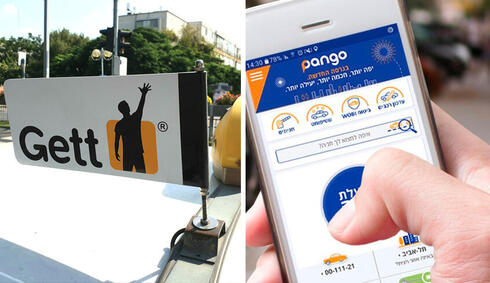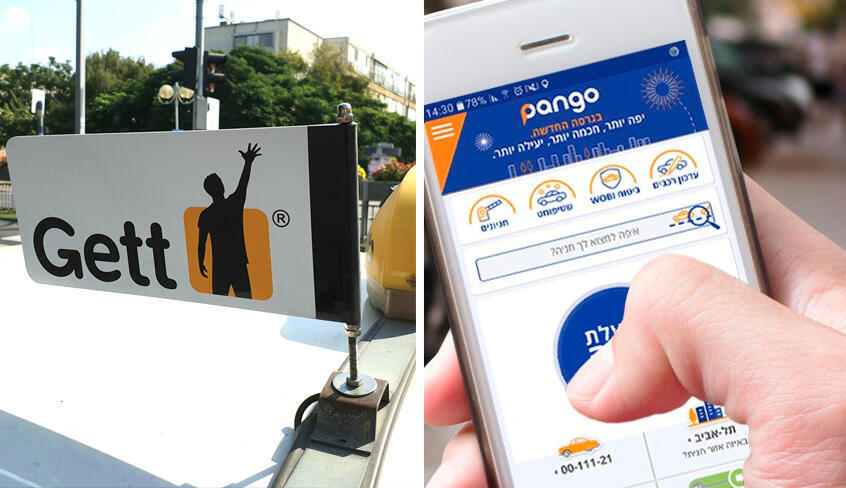
Pango acquires Gett for $175 million
Gett raised a total of $900 million throughout the years, but saw its valuation dwindle from $1.5 billion four years ago as it struggled to find a buyer
Pango has purchased 100% of taxi and transportation services company Gett for $175 million. The deal was signed on Thursday after several months of negotiations.
Gett's shareholders will receive about $175 million for all of the company's shares, with Gett's cash reserves of about $40 million to also be distributed among the shareholders
Gett, founded in 2010, has experienced numerous ups and downs since its inception. The company has raised $900 million, with the main shareholder currently being Swedish fund VNV Global, which owns a 43% stake. The Swedish fund initially invested a relatively small sum of $40 million in the purchase of a debt of $140 million from Russia’s Sberbank, and in total, has invested $107 million in Gett so far.
VNV will recoup much of its investment, but other investors, such as the Baring Vostok fund and Len Blavatnik, who was one of the first investors in the company, are likely to experience losses. In 2016, Gett raised $300 million from the car manufacturer Volkswagen, but in 2018, it was reported in the German press that the company had already written off the investment. The value of Gett has fluctuated over recent years, with estimates as low as $222 million in VNV's recent annual report.
Pango, known for its digital parking services app, offers a range of services to its users, including express parking, car washing, parking space location, refueling services, and collaboration with the Shagrir company for rescue services.
Pango is owned by the Weil family, which is one of the richest families in Israel but maintains a relatively low profile. It previously sold its shares in Osem to Nestlé in 1997 and in the past also controlled energy company Enlight alongside Shaul Elovitch.
The Weil family held 100% of Pango until 2020 when it sold a 44% stake at a company value of NIS 550 million.
Gett was founded 14 years ago by Dave Waiser and Roi More, who have not been actively involved in the company for years. Gett announced Waiser's departure in May 2022. Max Krasnykh and Matteo de Renzi, who were previously COO and Managing Director of GTM and UK, respectively, replaced Waiser as co-CEOs.
The company initially operated in the U.S., Russia, the UK, and Israel, but over the years, it withdrew from Russia and the U.S. In 2019, Gett pursued an IPO on Nasdaq at a valuation of $1.1 billion through a merger with a SPAC named Rosecliff Acquisition Corp I. The potential IPO caused discontent among employees who were disappointed by the low valuation compared to the options they held.
In 2020, the company announced a round of funding totaling $100 million at a valuation of $1.5 billion and postponed the IPO. The merger with the SPAC was expected to inject $250 million into the company.
In April 2022, the IPO was canceled, and simultaneously, Gett announced its exit from operations in Russia, which, along with Great Britain and Israel, had been one of its three main markets since exiting the U.S. in 2018. The exit from Russia was due to the sanctions imposed by the U.S. on Russia following the war with Ukraine and fierce competition with Yandex.
A month after the IPO cancellation, Waiser announced his departure from the company.
Gett now defines itself as a corporate software company for organizations (B2B). It operates a cloud-based software platform that enables the booking of trips by taxis, limousines, and private cars. This service is offered to organizations worldwide, establishing active partnerships with over 2,000 organizations.
Pango is not a large company, and its revenue is smaller than that of Gett, but data obtained by Calcalist reveals a very unusual profitability rate so that for every NIS 100 of revenue, it records a profit of NIS 33. Pango's revenues in 2022 were approximately NIS 155 million ($42 million). The company's net profit that year was about NIS 55 million ($15 million), which is a third of its revenue. The fact that the company employs only 100 people and its parking services collection activity, from which it collects considerable fees for every time a car parks in a lot (NIS 1.90) or on the street (2%), contributes to the exceptional profitability.
According to published estimates, Pango controls over 80% of the parking payments market in Israel from which it collects the fees. In fact, only established cyber and high-tech companies have such profitability rates. Check Point, for example, recorded in the fourth quarter of 2023 revenues of $664 million and a net profit of $298 million.
Pango will barely use any of its own funds to finance the purchase. Two banks, Hapoalim and Mizrahi Tefahot, will provide it with the financing for the transaction, about NIS 560 million, with the remaining amount to be paid from Gett's remaining cash funds.
Pango's financial results clarify why two central banks are willing to give it the full amount of the purchase, even though Pango's equity stands at only about NIS 55 million. Gett's revenues, by comparison, are slightly more than $100 million, that is, more than twice Pango's revenues, so that the merged company will have initial revenues of more than half a billion shekels, and be profitable - something that Gett hasn’t managed to achieve on its own. Pango is expected to keep the transportation activity under the Gett brand and under separate management, at least initially.
The merger requires the approval of the Israel Competition Authority. This is not a trivial confirmation due to Pango's market share in the parking sector and Gett's dominance in taxi services, even though the two companies are engaged in different fields.
Jefferies acted as a sole financial adviser to Gett on its sell to Pango.
.















